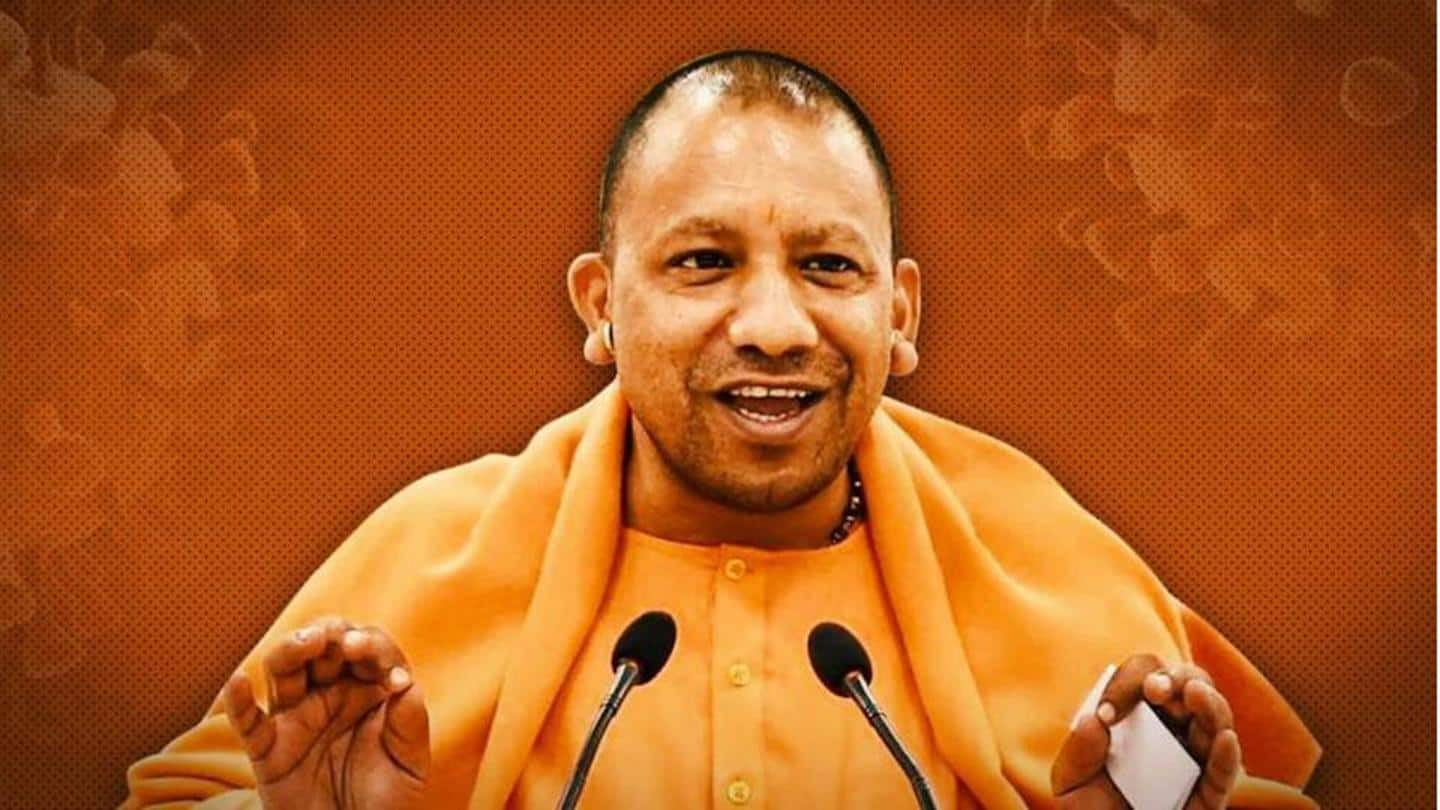
Uttar Pradesh prepared for third COVID-19 wave, says Yogi Adityanath
What's the story
Uttar Pradesh Chief Minister Yogi Adityanath on Sunday said that the state is prepared for the third wave of COVID-19 and that its pandemic situation is not alarming or out of control.
"We defeated the first wave, have got a grip on the second, and are well prepared to face a third one as and when it comes," the CM told reporters in Noida.
Black fungus
Government's focus on treating black fungus infection, says CM
Adityanath said the state government is focusing on treating the black fungus infection, which has emerged as a "new challenge."
It has issued an advisory in this regard, besides conducting virtual meetings with health officials and medical colleges in every district.
"The government's advisory calls for a comprehensive awareness campaign to inform people about the cause, symptoms, and treatment of black fungus," he said.
Rural areas
Testing and medical kits, trained personnel sent to villages
Extra COVID-19 test kits and medical kits, and surveillance teams trained in COVID-19 management have been dispatched to villages to check the spread of the pandemic in rural areas, the CM said.
Besides the district hospitals with 1,200-1,500 beds, Community Health Centers (CHCs) in villages will also be staffed with people trained at Gorakhpur Medical College and KGMU Hospital in Lucknow, he added.
Vulnerable groups
Dedicated health facilities for women and children
Acknowledging that the third wave may affect children more, the CM said district administrations have been asked to prepare a dedicated hospital for women and children.
"We have 2,220 ambulances of 102 service which are dedicated for women and children, for their emergency services, besides providing them telephonic consultation," he said.
Arrangements are ongoing to set up pediatric intensive care units in every district.
Comparison
'UP government's response to second wave better than first one'
Adityanath said his government's response to the second wave was better than the first one.
He said the state had no testing facility or isolation ward when it registered its first COVID-19 case on March 2, 2020. The patient, whose sample was sent to Pune, was admitted to a Delhi hospital.
"Today, we have taken the number of oxygen-equipped beds to 80,000," he said.
Quote
CM notes decline in total COVID-19 cases, positivity rate
"On April 24, UP recorded 39,055 cases and many predicted that the daily caseload would cross 1 lakh by May second week. However, today the number of cases stands at 12,547. Positivity rate has dipped from 16.3% to 4.8%," the CM said on Sunday.
Vaccination
1.5 crore people in Uttar Pradesh vaccinated so far: CM
Further, the Uttar Pradesh government has vaccinated 1.5 crore people, taken steps to procure vaccine supplies from abroad, and reduced the wastage of vaccines, Adityanath said.
"Concerns had been expressed given the population of Uttar Pradesh...But the situation is not out of control," he said.
Vaccination of the 18-44 group, which was limited to nine districts, is now being expanded to 23 districts.
Ganga
'Personnel posted at rivers to ensure no bodies are dumped'
Asked about the bodies found floating in Ganga, Adityanath said a provision of Rs. 5,000 was made for families who are unable to bear the costs of cremation.
"We have posted State Disaster Response Force and Provincial Armed Constabulary personnel at every river and water body, and alerted panchayats and urban local bodies to see that no bodies are dumped in rivers," he said.
Negligence
CM denies negligence, role of panchayat elections in COVID-19 surge
Asked if there was any "negligence" that led to the worsening of the situation, Adityanath said. "See, Noida has not become like Delhi...Don't you see the difference between Noida and Delhi (in terms of infections and fatalities)?"
He denied that the panchayat elections had led to a rise in cases. "Was there any election in Delhi? Did Maharashtra have an election?" he asked.
Media
CM asks media to send out 'positive messages'
The CM urged the media to send out "positive and constructive" messages instead of "presenting concerns over shortage of oxygen and medicines in a way that could create panic."
"The way we express our concerns, over oxygen, Remdesivir, etc., there is panic in the minds of people. This is the time we should help people to be brave and show strong willpower," he added.